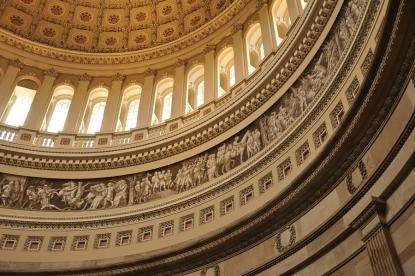In Thornton v. Equifax Info. Servs., No. 4:18-CV-80 (CDL), 2018 U.S. Dist. LEXIS 189052 (M.D. Ga. Nov. 5, 2018), the United States District Court for the Middle District of Georgia confirmed that a plaintiff’s state law claims were preempted by section 1681t of the Fair Credit Reporting Act.
The plaintiff, Christopher Thornton (“Thornton”), alleged that Kinetic Credit Union (“Kinetic”) reported false information about him to the consumer credit reporting agencies in violation of the Fair Credit Reporting Act (“FCRA”). In addition to his FCRA claims, Thornton asserted Georgia state law claims against Kinetic, including for defamation. Kinetic moved to dismiss the state law claims on the basis that they were preempted by 15 U.S.C. § 1681t(b)(1)(F).
15 U.S.C. § 1681t(b)(1)(F) states in part, “[n]o requirement or prohibition may be imposed under the laws of any State (except specified Massachusetts and California statutes) … with respect to any subject matter regulated under… (15 U.S.C. § 1681s-2), relating to the responsibilities of persons who furnish information to consumer reporting agencies.”
Thornton pointed to 15 U.S.C. § 1681h(e) as an exception to the broad preemption codified in section 1681t(b)(1)(F). On its face, 15 U.S.C. § 1681h(e) provides limited preemption when the furnisher does not act with malice or willful intent, but when there is no such intent, there is no preemption.
The Court agreed that the limited preemption in section 1681h(e) conflicts with the preemption in section 1681t(b)(1)(F). The Court observed that, “the two provisions of the FCRA cannot be harmonized unless providing false information with ‘malice or willful intent to injure,’ § 1681h(e), means something different than providing false information that the furnisher ‘knows or has reasonable cause to believe that the information is inaccurate,’ which is prohibited under § 1681s-2(a)(1)(A). If this language means the same thing, the FCRA contains one provision that provides complete preemption and another that provides limited preemption under the same exact circumstances—a better example of direct conflict could not be found.” Thornton, 2018 U.S. Dist. LEXIS 189052, at *6.
The Court noted that where there are irreconcilable conflicts between two statute, there are two ways that the earlier statute can be repealed by implication: (1) where there are provisions in the two acts in irreconcilable conflict, the later-enacted statute constitutes a repeal of the earlier one, at least to the extent of the conflict; and (2) if the later-enacted provision covers the whole subject of the earlier provision – and is clearly intended to substitute it – then the second act also repeals the earlier act.
The Court discussed that there were two different versions of the FCRA at issue in this case – “section 1681h(e), which was part of the original FCRA, which did not impose duties on furnishers of credit information or create a right of action against furnishers based on their furnishing of inaccurate credit information to consumer reporting agencies” and the new version of the FCRA – including section 1681t(b)(1)(F) – which was overhauled when Congress enacted the Consumer Credit Reporting Reform Act of 1996 (“CCRRA”). Id. at *8 -9.
The CCRAA added section 1681s-2, which imposed specific duties on furnishers of information, as well as an enforcement scheme for violations by those furnishers. In doing so, Congress also added section 1681t(b)(1)(F), which expressly preempted state law.
At the conclusion of its analysis, the Court held that section 1681t(b)(1)(F) implicitly preempted section 1681h(e) – to the extent that the two statutes conflict – as the CCRRA was a, “clear and manifest expression of Congress’s intent to regulate the duties of credit information furnishers and to displace state law on this subject.”



 />i
/>i

